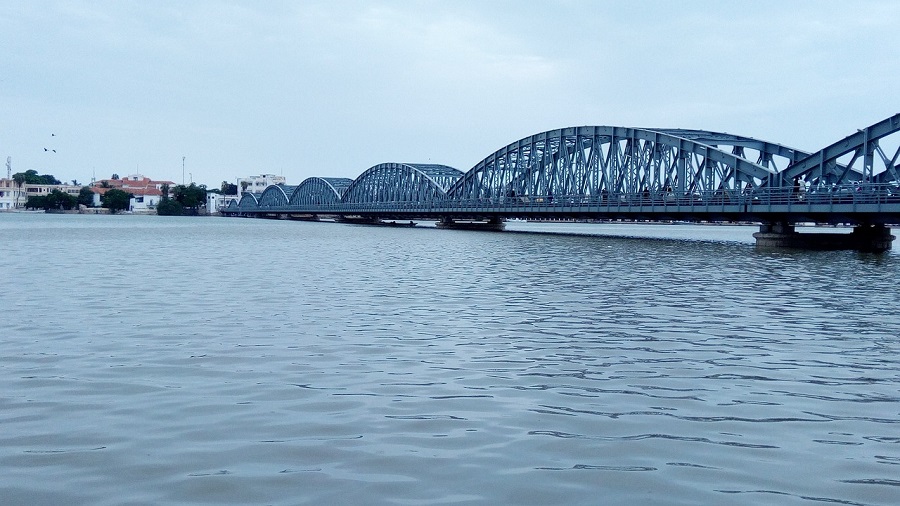Sub-Saharan West Africa is a region of the continent with a promising horizon if there is a boost in investments, particularly in certain key areas that are strategic for its development, and which range from the provision of infrastructure to the deployment of financial services that can encourage local entrepreneurship on a small and medium scale.
Regarding infrastructure, we are talking about some as essential as roads , which allow the connection and land transport of people and goods, with all that this entails for economic and territorial integration purposes.
But as we well know, the construction of roads and highways is very expensive , and requires large public works projects whose financing is very complex.

Hence, solutions such as Public-Private Partnerships (PPP) are emerging, which with respect to conventional public bidding have obvious advantages demonstrated in countless ambitious projects in the most developed countries, and represent a model which according to specialists can be replicated in sub-Saharan West African countries with the best prospects.
WHAT ARE PPPS?
The PPP’s or PUBLIC-PRIVATE PARTNERSHIP are agreements between governments and private actors that can have different aspects, but in the area that concerns us it would be that the latter assume the commitment to finance (through the direct contribution of funds or the search of that financing), build and eventually manage publicly owned infrastructure.
According to this model, the road infrastructure, let’s say a highway, would continue to be totally public in terms of ownership, since the compensation formula for the private entity would come from payment for the availability of the resource over a period of time. broad stipulated contractually, taxes on citizens or companies (for example tolls) or a combination of both options. Additionally, PPP contracts may include or leave out infrastructure maintenance .
In regions such as sub-Saharan Africa, this route represents a solution that solves the problem of the shortage of public money for the provision of infrastructure and essential services, which are essential for the economic development of any country.
That is why one of the most politically stable and economically promising states in the western sub-Saharan area, Senegal , has opted to develop specific legislation for PPPs ; and has even created special administrative units such as the DFPPP , dedicated exclusively to this type of projects.
Something that is not surprising if we consider the positive impact that the construction of strategic infrastructures such as the Dakar-Diamniadio highway (completed in 2013), a greenfield project , that is, developed from scratch without taking advantage of the country’s land connectivity and economic activity, has had on the country’s land connectivity and economic activity. pre-existing infrastructures such as the brownfields , which was financed by the International Development Association (IDA). Likewise, an extension of the highway between Dakar and Thiès
is also currently underway , for whose execution in phase 2 a public-private collaboration project has been carried out in association with the Eiffage Group, and with financing from organizations such as the World Bank, the African Development Bank and the French Development Agency.
Added to this is the investment being made in expanding the railway network between Dakar and Diamniadio to reach the international airport , in a journey of just 45 minutes.
These infrastructures are added to that of such important nodes as the port of Dakar , through which 90% of Senegal’s trade with foreign countries transits, and is also the entry point of the entire logistics corridor that crosses several countries in the Sahel to reach Mali.

PROMOTING PPPS IN WEST AFRICA
Given the potential of this type of financial instruments, the Project Preparation and Development Unit ( PPDU ) has been in operation since 2015 to collaborate with the Economic Community of West African States ( ECOWAS , in which the main countries of the region participate: Nigeria, Senegal, Ivory Coast, Guinea-Bissau, Benin, etc.) in the design of PPPs , with an eye to particularly in infrastructure .
In fact, this inter-African organization has drawn up a Regional Infrastructure Plan that aims to execute more than 200 projects before 2045 , with special attention to public-private collaboration through PPPs.
FINANCIAL DEVELOPMENT IN WESTERN SUB-SAHARAN AFRICA
Along with the deployment of infrastructure, the development of a financial system that boosts economic activity in the countries of the area is also very important.
In this context, the commitment of groups such as BDK Financial Group stands out , which is not only financing large projects, but also those of small and medium-sized companies , and even small entrepreneurs through instruments such as microcredits , which have proven to be very effective, also favoring the role of women within the economic fabric.
It is a pan-African banking group that has a presence in Senegal (Banque de Dakar), Côte d’Ivoire (Banque d’Abidjan) and Mali (Credit Kash), as well as banking services subsidiaries in Benin , Togo and Guinea Conakry .
BDK stands out for its commitment to the long-term development of this entire region of Western Sub-Saharan Africa, following a model that encompasses investment banking , retail banking , microfinance and the promotion of private entrepreneurship , through resources such as the microloans that we have just mentioned. see.
Likewise, the group has been making a determined commitment for years to bring to the area all the advantages of mobile banking and fintech resources , through an application like Kash Kash that allows payments to be made through mobile phones , and which already enjoys a wide implementation in countries like Senegal .

It should be noted that mobile banking is experiencing great expansion throughout sub-Saharan Africa , driven by the limited and sometimes problematic access to branches , and by the advantages offered by being able to collect, pay, obtain financing and save online.
Smartphone payment gateways play a crucial role in streamlining transactions, offering convenience , security and immediacy . Something that benefits both the sender and receiver of payments, and that, for example, represents an important stimulus for local retail trade.
Added to all this is the possibility of directly accessing microcredits offered by platforms such as CreditKash , which through the CreditKash Mobile Banking App allows you to obtain loans at interest rates substantially lower than the alternatives that exist in the countries of the area.
In this way, progress is made in an essential aspect such as financial inclusion , highlighted as basic in the Sustainable Development Goals formulated by the UN .
Furthermore, as the success of the BDK Group demonstrates, betting on Africa is perfectly viable , which should be an incentive for international private investment, through formulas such as alliances with local African companies to promote entrepreneurship , economic growth and ultimately general development . In a context in which public financing to these states by the large MDB organizations , that is, the World Bank and the International Monetary Fund, continues to focus mainly on middle-income countries ( MIC ), as reveal OECD reports , which speak of hoarding of up to 70% of loans .
Hence, the importance of bringing together public-private synergies, both with regard to financial investment and the development of infrastructure through the PPP model that we saw, since collaboration in these key areas outlines a very promising horizon for progress. general economic of the region.